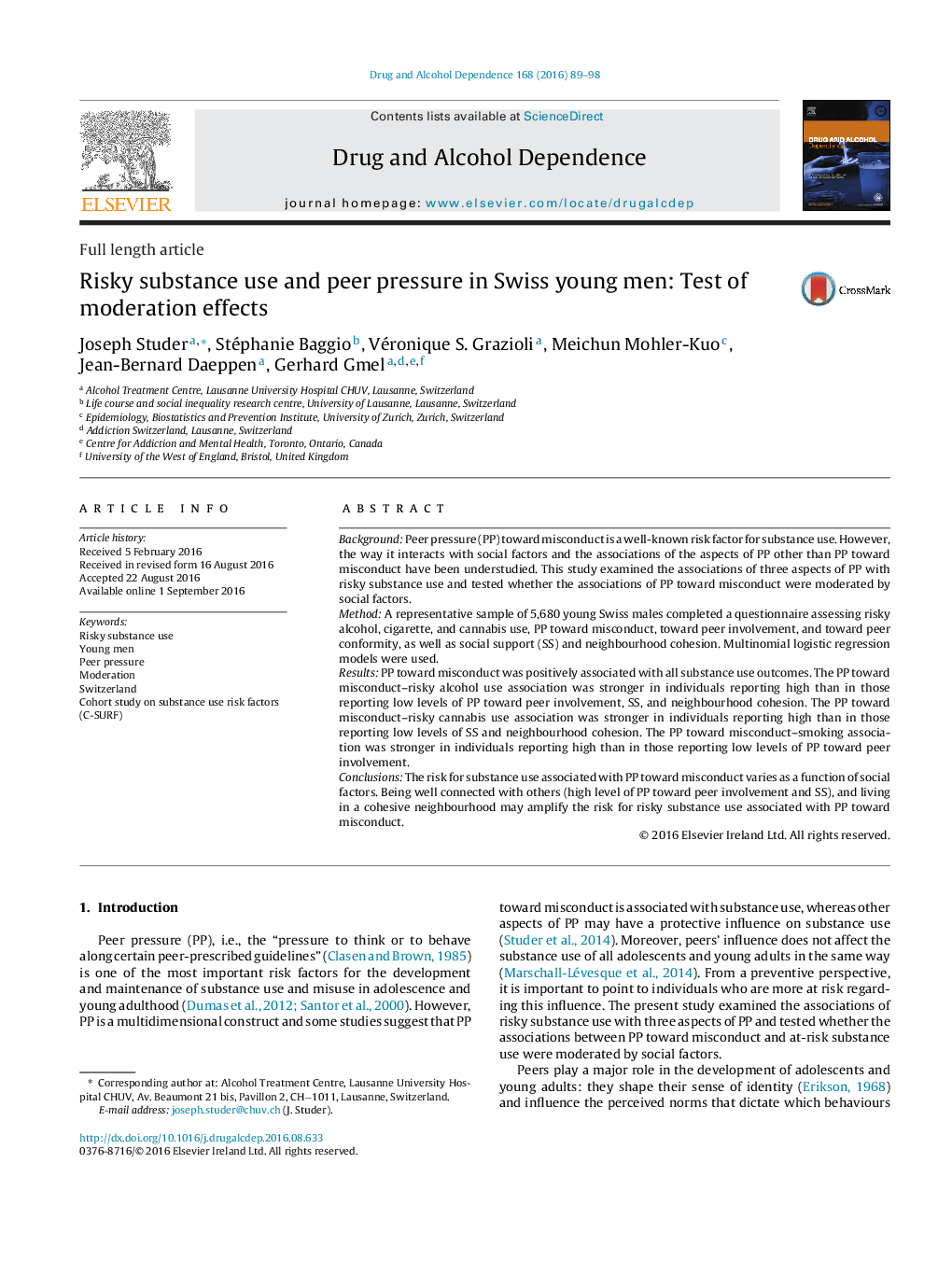| کد مقاله | کد نشریه | سال انتشار | مقاله انگلیسی | نسخه تمام متن |
|---|---|---|---|---|
| 5120452 | 1486123 | 2016 | 10 صفحه PDF | دانلود رایگان |
• Peer pressure (PP) to misconduct increased the risk for risky substance use.
• Social factors (PP toward peer involvement, neighbourhood cohesion) moderated this risk.
• However, social factors did not reduce the PP to misconduct effect but amplified them.
• Being well connected with others amplified the risk associated with PP for misconduct.
• Living in a cohesive neighbourhood amplified the risk associated with PP for misconduct.
BackgroundPeer pressure (PP) toward misconduct is a well-known risk factor for substance use. However, the way it interacts with social factors and the associations of the aspects of PP other than PP toward misconduct have been understudied. This study examined the associations of three aspects of PP with risky substance use and tested whether the associations of PP toward misconduct were moderated by social factors.MethodA representative sample of 5,680 young Swiss males completed a questionnaire assessing risky alcohol, cigarette, and cannabis use, PP toward misconduct, toward peer involvement, and toward peer conformity, as well as social support (SS) and neighbourhood cohesion. Multinomial logistic regression models were used.ResultsPP toward misconduct was positively associated with all substance use outcomes. The PP toward misconduct–risky alcohol use association was stronger in individuals reporting high than in those reporting low levels of PP toward peer involvement, SS, and neighbourhood cohesion. The PP toward misconduct–risky cannabis use association was stronger in individuals reporting high than in those reporting low levels of SS and neighbourhood cohesion. The PP toward misconduct–smoking association was stronger in individuals reporting high than in those reporting low levels of PP toward peer involvement.ConclusionsThe risk for substance use associated with PP toward misconduct varies as a function of social factors. Being well connected with others (high level of PP toward peer involvement and SS), and living in a cohesive neighbourhood may amplify the risk for risky substance use associated with PP toward misconduct.
Journal: Drug and Alcohol Dependence - Volume 168, 1 November 2016, Pages 89–98
